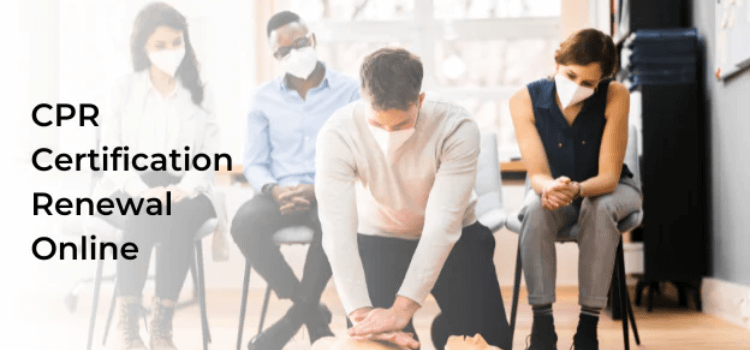In the world of healthcare, competence and expertise are paramount. Healthcare professionals are entrusted with the well-being of patients, and their knowledge and skills can mean the difference between life and death.
To ensure a high standard of care, healthcare professionals are required to obtain and maintain specific certifications.
Let’s delve deeper into the basic healthcare certifications that every healthcare professional must have.

4 Essentials Certificates Every Healthcare Professional Needs
Basic Life Support (BLS) Certification
Basic Life Support (BLS) certification is the cornerstone of healthcare. It equips professionals with the fundamental skills necessary to respond to life-threatening situations, and this often includes CPR (Cardiopulmonary Resuscitation).
BLS certification is widely recognized and serves as a foundational requirement for many healthcare roles, from doctors and nurses to EMTs and paramedics. The knowledge and skills gained from BLS certification are indispensable for professionals at all levels of care.
BLS Courses
The BLS courses typically cover a range of critical topics, such as recognizing cardiac arrest, performing high-quality CPR, using automated external defibrillators (AEDs), and relieving choking in both adult and pediatric patients.
These skills are vital for preserving brain function and preventing death when a person’s heart stops beating or they stop breathing.
Validity Period
BLS certification typically has a validity period of two years, after which it needs to be renewed. Renewal requirements typically include completing a BLS renewal course and passing a written exam.
The renewal course is designed to reinforce and update the participant’s knowledge and skills in accordance with the latest guidelines from organizations such as the American Heart Association (AHA) or the American Red Cross.
Cardio-Pulmonary Resuscitation (CPR) Certification
Cardio-Pulmonary resuscitation (CPR) is the backbone of basic life support. CPR certification focuses on teaching participants the life-saving techniques required when someone’s heart stops beating (cardiac arrest) or when they stop breathing.
This certification is essential not only for healthcare professionals but also for individuals in various other professions and the general public.
CPR Courses
CPR certification courses typically cover the following key components:
- Chest Compressions: Learning the correct technique for providing chest compressions is crucial, as it helps circulate blood to vital organs during cardiac arrest.
- Rescue Breaths: Depending on the situation and the rescuer’s level of training, CPR courses may cover rescue breaths to provide oxygen to the victim’s lungs.
- Use of AEDs: Automated external defibrillators (AEDs) are often used in conjunction with CPR to shock the heart back into a normal rhythm. CPR certification includes training on AED use.
- Recognition of Cardiac Arrest: Understanding when to initiate CPR is just as important as knowing how to perform it. CPR courses teach participants how to recognize signs of cardiac arrest.
Validity Period
CPR certification is typically offered by organizations like the American Heart Association (AHA) or the American Red Cross, and the duration of certification varies but often requires renewal every two years.
Renewal for CPR certification involves taking an online CPR renewal course, which covers the latest guidelines and techniques for performing CPR. Additionally, participants must pass a written exam and demonstrate their practical skills in simulated scenarios. Keeping CPR certification current is crucial because timely and effective CPR can significantly increase the chances of survival in cardiac arrest situations.
Advanced Cardiac Life Support (ACLS) Certification
While BLS and CPR provide the foundation for responding to cardiac emergencies, Advanced Cardiac Life Support (ACLS) certification takes it a step further.
ACLS is essential for healthcare professionals working in emergency departments, critical care settings, and intensive care units.
ACLS Courses
ACLS certification delves into advanced resuscitation techniques and the management of complex cardiac arrest scenarios. Some of the key components covered in ACLS certification include:
- Advanced airway management: Intubation and use of advanced airway devices to ensure adequate oxygenation.
- Pharmacology: Administration of medications for cardiac rhythm control and blood pressure management.
- Electrical therapies: Understanding and application of defibrillation and synchronized cardioversion.
- Team dynamics: Effective communication and teamwork during resuscitation efforts.
Validity Period
ACLS certification typically expires after two years, and renewal requirements are comprehensive.
To renew ACLS certification, healthcare professionals are required to complete an ACLS renewal course, pass a written exam, and demonstrate proficiency in simulated scenarios.
This ensures that practitioners remain current with the latest guidelines and are capable of delivering advanced care during high-stress situations.
Pediatric Advanced Life Support (PALS) Certification
For healthcare employees who care for pediatric patients, Pediatric Advanced Life Support (PALS) certification is indispensable.
PALS focuses on life-saving techniques specifically tailored to children and infants. Healthcare providers in pediatric wards, neonatal intensive care units, and emergency departments benefit greatly from this certification.
PALS Courses
PALS certification covers a range of topics, including:
- Pediatric assessment: Recognizing and evaluating the condition of pediatric patients.
- Pediatric airway management: Techniques for maintaining clear airways and ensuring adequate oxygenation.
- Pharmacology: Appropriate use of medications in pediatric resuscitation.
- PALS algorithms: Following specific algorithms for various pediatric cardiac arrest scenarios.
Validity Period
Like ACLS, PALS certification typically lasts for two years and requires renewal. To renew PALS certification, healthcare professionals must complete a PALS renewal course, pass an exam, and demonstrate proficiency in pediatric emergency scenarios.
This ensures that practitioners remain adept at providing specialized care to young patients during critical situations.
Conclusion
Healthcare professionals are the backbone of the medical industry, and their certifications are a testament to their competence. Basic certificates like BLS, CPR, ACLS, and PALS are vital for providing high-quality care to patients. However, it’s equally crucial to stay updated by fulfilling renewal requirements.
Ensuring that healthcare professionals possess and maintain these certifications guarantees a standard of care that patients can trust, ultimately contributing to safer and more effective healthcare delivery. So, healthcare professionals, remember: your certifications are not just pieces of paper; they are lifelines that keep you and your patients safe.






Leave a Reply